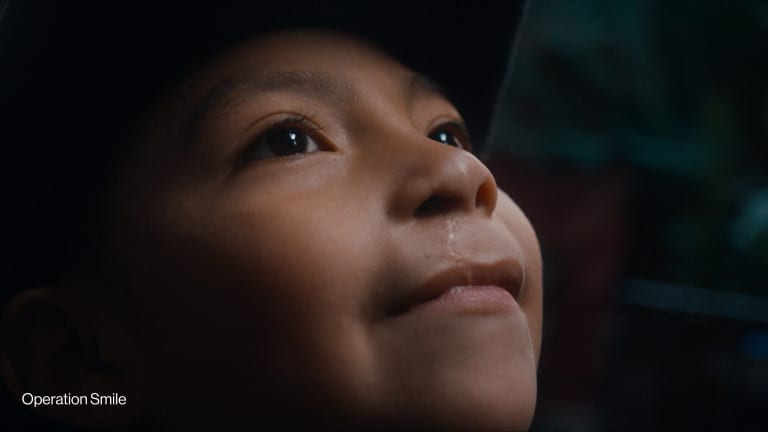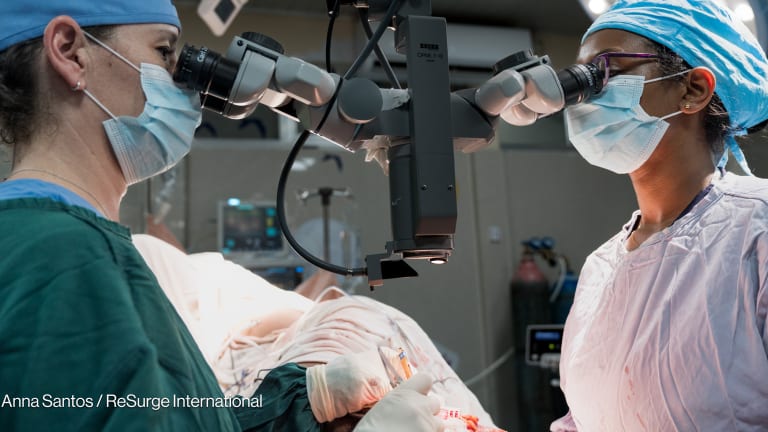
In many corners of the world, surgery — even desperately needed, lifesaving surgery — is not available.
Over 5 billion people, more than two-thirds of the world’s population, lack access to safe, affordable surgery. Access is worst in low-income and lower-middle-income countries, where 9 of 10 people cannot access basic surgical care. This is because of three major barriers: distance from where a patient lives to a hospital, limited health infrastructure, and a staggering shortage of trained surgical professionals.
In countries such as Guatemala and Malawi, families with a loved one in need of surgery are often forced to travel hundreds of miles over days, using every last financial resource to make the trip to reach a hospital — with the hope of receiving needed health care.
Access to safe, essential surgery is a basic human right — yet it is one of the most overlooked global health crises of our time. It’s time to close the gap in surgical care and ensure lasting access for all.
A new blueprint for change
At Operation Smile, we’ve spent more than 40 years working to close the surgical access gap and expand comprehensive care for our patients. What we’ve learned over decades from working hand-in-hand with communities around the world is clear: The only way to solve this crisis is to bring care closer to home.
To do that, we must invest in education as a force multiplier — training local professionals, strengthening district hospitals, and equipping communities to provide care where it’s needed most. That’s why we just launched Operation 100 — a blueprint to train and equip 100 surgical teams across 100 district hospitals in low-resource regions.
We estimate the impact would amount to nearly 500 million people gaining access to essential cleft surgical care within a two-hour distance from their home. New surgical teams — which include surgeons, nurses, anesthesiologists, biomedical technicians and pediatricians — will also be equipped globally to elevate the quality of care and deliver life-changing procedures and comprehensive care.
All training programs will be built in collaboration with local partners, leveraging and elevating their existing capacity to bolster local health care systems in rural areas.
From vision to reality — the impact across Africa
I am witnessing this work firsthand as I write this in Kigali, Rwanda, where Operation Smile is hosting the Pan-African Surgical Conference in partnership with the Rwandan Ministry of Health, University of Rwanda, and the Rwanda Surgical Society. The stark realities in Africa echo this global surgical workforce shortage — as the continent is expected to face a shortage of 6 million surgical care providers by 2030, leaving millions without access to essential surgical care.
This milestone event united over 550 academics, policymakers, and frontline health care experts from 36 countries — 23 of which are in Africa — to drive locally led, scalable solutions that will expand surgical access across the continent.
Walking through the conference center, I see firsthand the urgency of this moment. I’ve listened to passionate discussions between surgeons, nurses, and policymakers — all united by a common goal: Strengthening Africa’s surgical workforce and expanding access to life-changing care.
The energy here is electric. The stories I’ve heard — of patients waiting years for basic surgical procedures, of doctors working tirelessly with limited resources, of health systems striving to build sustainable solutions — underscore why this moment is so critical. Together, we are not just talking about change; we are building the future of surgical care in Africa.
Operation 100 is just the start
This conference is a powerful reflection of Operation Smile’s decades of transformative and collaborative work across the globe, not only in Africa but also in the 37 countries where we operate. It’s a testament to the impact of local solutions, collaboration, and our unwavering commitment to patients, providers, and communities. What’s happening today in Rwanda is just one example of what’s possible when we invest in local solutions. These challenges — access to surgical care, leadership development, and health system strengthening — are not unique to Africa; they are global issues that demand immediate attention.
Our strategy is bold because the global surgical workforce shortage demands nothing less. By launching Operation 100, we are directly addressing the critical shortage of access to surgical care worldwide. Through partnerships with local health care providers, ministries of health, health systems, governments, NGOs, corporations, and academic institutions, we’ve seen firsthand how local training and leadership can create lasting change.
This conference was born from Operation Smile’s decades of work across 12 African countries, building a sustainable surgical workforce with key partners and working together to equip Africa’s next generation of surgeons, anesthesiologists, and allied health professionals. By strengthening expertise across all levels of care, we can foster sustainable, patient-centered surgical systems.
What’s happening in Rwanda today is proof that change is possible and that investing in local training, local leadership, and local solutions works.
But with a bold strategy, we need bold action. We need partners, investors, and global health leaders to commit to scaling this impact worldwide. Operation 100 is not the finish line, for us, it truly is just the starting point.
Together, with our partners and local medical volunteers, this is our moment to create a world where every patient has access to essential surgery, every community has trained providers, and every country has a stronger health care system.
To all of you reading this opinion piece, your expertise, partnership, and innovation are critical to future-proofing access to surgical care for generations to come. The time for change is now, and the blueprint for success is right before us. Join us in building a future where safe, essential surgery is within reach for all.
Operation Smile is a global nonprofit dedicated to bridging the gap in access to essential surgeries and health care, reaching every child with a cleft condition in every community they serve.








